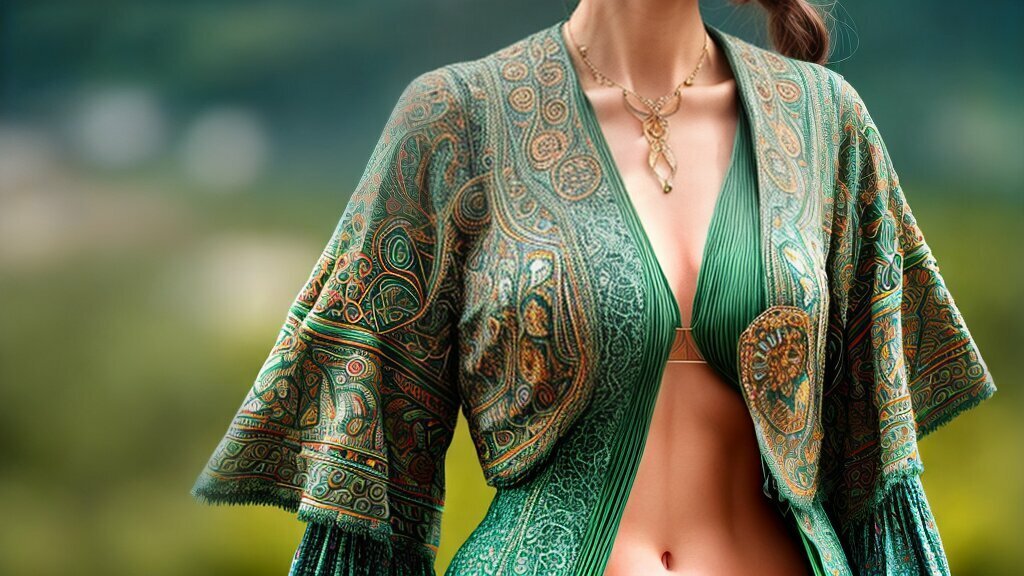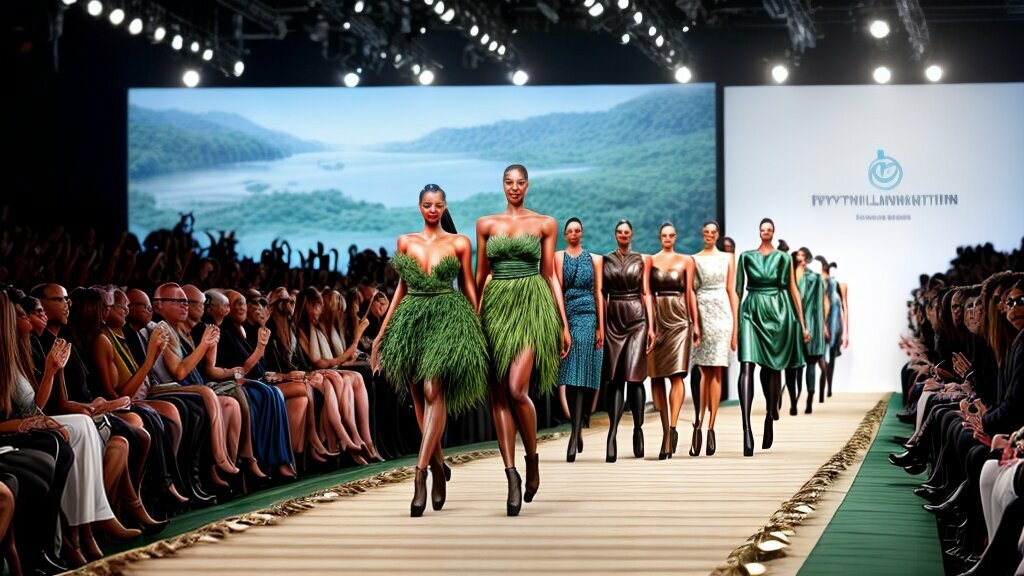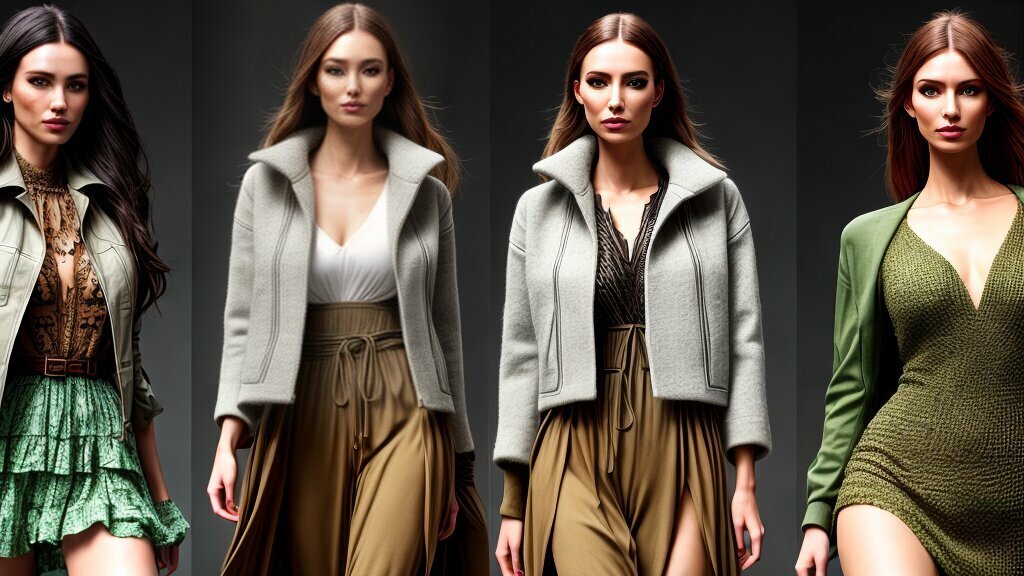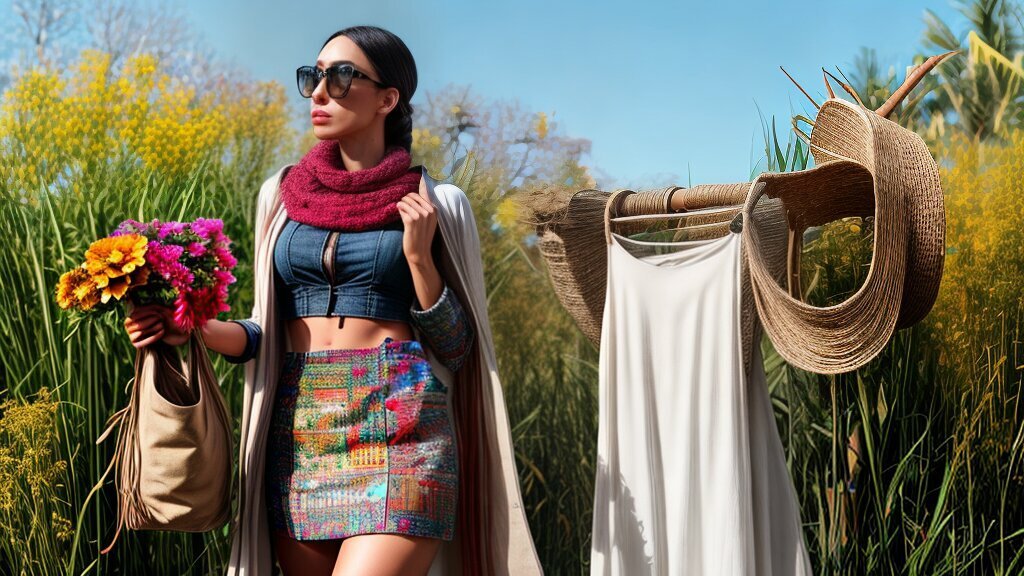As consumers, we have the power to make a difference through our purchasing choices. Ethical fashion is a movement that combines style with sustainability, creating clothing that is both fashionable and environmentally responsible. In this article, we’ll explore what ethical fashion is, why it’s important, and how you can make conscious choices when shopping for clothes.
Fast fashion has taken a toll on the environment, with clothing production being one of the largest contributors to global carbon emissions. The industry also often relies on exploitative labor practices, resulting in poor working conditions and low wages for many garment workers. Ethical fashion seeks to address these issues by prioritizing sustainable materials and practices, as well as fair labor conditions.
Key Takeaways:
- Ethical fashion combines style with sustainability.
- The fast fashion industry has negative impacts on the environment and labor conditions.
- Ethical fashion focuses on sustainable materials and fair labor practices.
Understanding Ethical Fashion
When it comes to ethical fashion, there are several important aspects to consider. Eco-friendly fashion is one of them, which focuses on reducing the impact of manufacturing on the environment.
This can involve using sustainable materials, such as organic cotton or recycled polyester, and adopting manufacturing processes that conserve resources and minimize waste. For instance, some brands use innovative techniques like 3D printing or upcycling to create unique, eco-friendly garments.
Fair trade fashion is another essential element of ethical fashion. It centers on supporting workers in the fashion supply chain and ensuring they receive fair wages and safe working conditions.
| Eco-Friendly Fashion | Fair Trade Fashion |
|---|---|
| Uses sustainable materials and processes | Empowers workers through fair wages and safe working conditions |
| Minimizes harm to the environment | Supports workers in the supply chain |
Conscious fashion is also a critical component of ethical fashion. It involves making thoughtful choices as a consumer, such as buying secondhand clothing or choosing garments with minimal environmental impact.
Overall, ethical fashion requires a holistic approach that takes into account the environmental and social impact of the entire supply chain, from raw materials to end-of-life disposal. By choosing ethical fashion, consumers can support sustainable and responsible practices that benefit both people and the planet.

The Ethical Fashion Industry
The ethical fashion industry has been rapidly growing in recent years, with consumers becoming increasingly conscious of the environmental and social impact of their fashion choices. Ethical fashion brands prioritize sustainable and ethical practices, aiming to reduce the negative impact of the fashion industry on the planet and on workers in the supply chain.
One of the challenges faced by ethical fashion brands is the higher cost of sustainable materials and fair labor practices. However, many brands have found success through a commitment to transparency and building strong relationships with consumers who value ethical practices.
| Examples of successful ethical fashion brands | Key sustainable practices |
|---|---|
| Patagonia | Use of organic cotton and fair labor practices |
| Everlane | Transparent pricing and sustainable materials |
| Reformation | Use of eco-friendly materials and sustainable production methods |
Through their commitment to ethical practices, these brands have not only had a positive impact on the environment and workers in the supply chain, but they have also established themselves as leaders in the industry, inspiring other brands to follow suit.

The growth of the ethical fashion industry is a promising trend, signaling a shift towards a more sustainable and fair fashion industry. As consumers become more aware of the impact of their fashion choices, ethical fashion brands will continue to play a crucial role in driving positive change in the industry.
Current Ethical Fashion Trends
The ethical fashion movement has been gaining momentum in recent years, with more and more brands prioritizing sustainable and ethical practices. As a result, we’re seeing a shift in fashion trends towards more conscious and eco-friendly styles.
One trend that’s been on the rise is recycled and upcycled fashion. Brands are using recycled materials such as plastic bottles and discarded fabrics to create new clothing items. This not only reduces waste but also gives new life to materials that would have otherwise ended up in landfills.
Another trend that’s gaining popularity is slow fashion. This involves creating high-quality pieces that are meant to be worn for years, rather than just one season. Slow fashion focuses on durability, timelessness, and ethical production practices.
Minimalism is also becoming more prevalent in ethical fashion. This trend promotes owning fewer, but higher-quality items that can be mixed and matched to create multiple outfits. The focus is on buying less and making each item count.
Finally, we’re seeing a trend towards transparency and traceability in the fashion industry. Consumers are increasingly interested in knowing exactly where and how their clothing was made, and ethical brands are responding by providing this information. Labels and tags that communicate a product’s ethical and sustainable features are also becoming more common.

“As ethical fashion continues to grow, we can expect to see more innovative and eco-friendly practices in the industry.”
Conclusion
As we’ve seen throughout this guide, ethical fashion is not only a trend but a movement towards sustainability and social responsibility. The fashion industry has a significant impact on the environment and labor conditions, but ethical fashion offers a solution to these issues. By choosing sustainable materials, fair trade practices, and conscious consumption, we can make a positive impact on the planet and society.
As consumers, we hold the power to drive change in the fashion industry. By supporting ethical fashion brands and embracing sustainable trends, we can send a message to the industry that we care about the impact of our choices. By making conscious decisions, we can create a future where fashion is no longer a source of harm but a force for good.
The Choice is Yours
The ethical fashion movement is growing, and it’s up to us to be a part of it. Every time we make a purchase, we have the opportunity to choose sustainable and ethical products that align with our values. Let’s make a difference, one purchase at a time.
FAQ
Q: What is ethical fashion?
A: Ethical fashion refers to clothing and accessories that are produced in a way that minimizes harm to the environment and respects human rights. It involves sustainable manufacturing processes, fair labor practices, and conscious consumer choices.
Q: Why is ethical fashion important?
A: Ethical fashion is important because it addresses the negative impact of fast fashion on the environment and labor conditions. By supporting ethical brands, consumers can make sustainable and stylish choices that promote social and environmental responsibility.
Q: What is eco-friendly fashion?
A: Eco-friendly fashion includes materials and manufacturing processes that are environmentally friendly and minimize harm to the planet. This can involve using organic or recycled materials, reducing water and energy consumption, and avoiding toxic chemicals.
Q: What is fair trade fashion?
A: Fair trade fashion focuses on improving working conditions and empowering artisans in developing countries. It ensures that workers receive fair wages, have safe working environments, and have the opportunity to improve their communities through sustainable practices.
Q: What is conscious fashion?
A: Conscious fashion involves thoughtful and mindful consumer choices. It considers the social and environmental impact of fashion and encourages consumers to choose brands and products that align with their values. It promotes responsible consumption and encourages a more sustainable fashion industry.
Q: How has the ethical fashion industry evolved?
A: The ethical fashion industry has grown significantly in recent years. Ethical fashion brands have emerged, prioritizing sustainability and social responsibility. They have showcased that fashion can be both stylish and sustainable, leading to a shift in consumer preferences and the rise of the ethical fashion movement.
Q: What are some current ethical fashion trends?
A: Some current ethical fashion trends include the use of organic and recycled materials, upcycling and repurposing clothing, and embracing minimalist and capsule wardrobes. Other trends involve supporting local artisans and embracing gender-neutral or inclusive fashion.
Q: How can consumers contribute to the ethical fashion movement?
A: Consumers can contribute to the ethical fashion movement by making conscious choices in their fashion purchases. This includes supporting ethical brands, researching the supply chain of products, and prioritizing quality over quantity. By advocating for change and spreading awareness, consumers can have a significant impact on the fashion industry and the planet.

